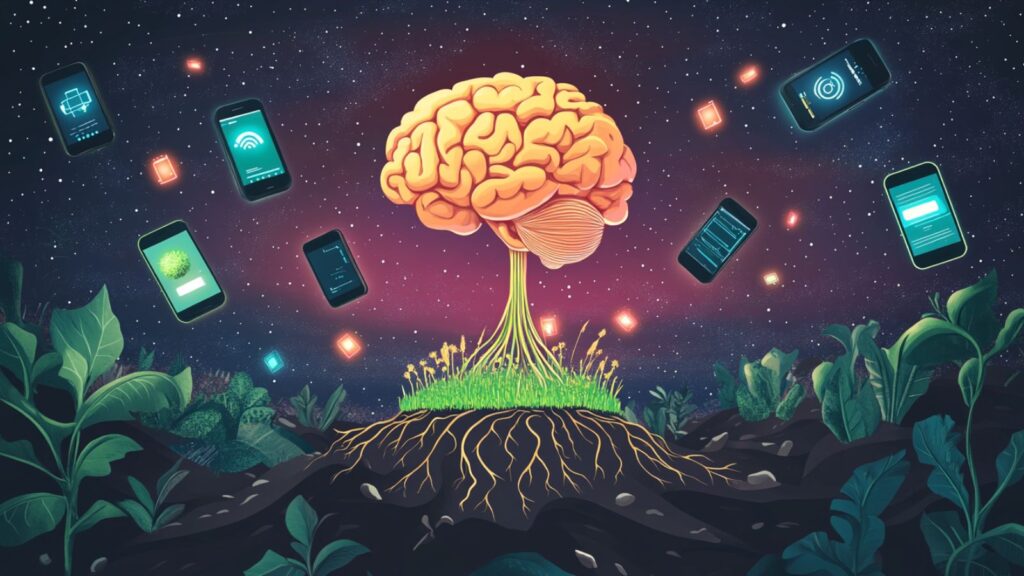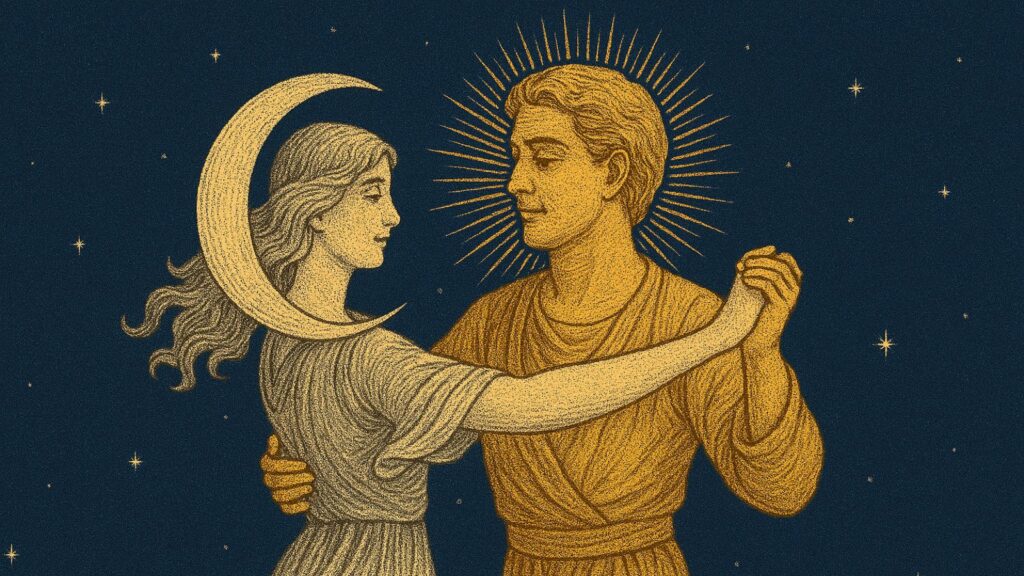Starting February 19, join Ram Dass and his guests for the live video webinar
“Being Here Now,” a soulful exploration of mindfullness, love, service, living and dying. For
this 4-session Evolver Intensive, produced by GreatMystery.org, Ram Dass’ guests will be Jack Kornfield,
Rameshwar Das, Mirabai Bush, and Dale Borglum. The topics that Ram Dass will
reflect on during this course — Wise Heart, Polishing the Mirror of the Mind,
Compassion in Action, and Love and Death — have been cultivated from his 45 years
of teaching in the West.
For most people, when you say
that suffering is Grace it seems off the wall to them. And we’ve got to deal now with our own
suffering and other people’s suffering.
Because that is certainly a distinction that is very real, because even
if we understand the way in which suffering is Grace — that is the way in which
it can be a vehicle for awakening — that is fine for us. It’s quite a different thing to look at
somebody else’s suffering and say it’s Grace. And Grace is something that an individual can see about
their own suffering and then use it to their advantage. It is not something that can be a
rationalization for allowing another human being to suffer. And you have to listen to the level at
which another person is suffering.
And when somebody is hungry you give them food. As my guru said, God comes to the
hungry person in the form of food.
You give them food and then when they’ve had their belly filled then
they may be interested in questions about God. Even though you know from say Buddhist training, or whatever
spiritual training you have had, that the root cause of suffering is ignorance
about the nature of dharma. To
give somebody a dharma lecture when they are hungry is just inappropriate methodology
in terms of ending suffering.
So, the hard answer for how
you are able to see suffering as Grace, and this is a stinker really, is that
you have got to have consumed suffering into yourself. Which means, you see there is a
tendency in us to find suffering aversive. And so we want to distance ourselves from it. Like if you
have a toothache, it becomes that toothache. It’s not us any more.
It’s that tooth. And so if
there are suffering people, you want to look at them on television or meet them
but then keep a distance from them.
Because you are afraid you will drown in it. You are afraid you will drown in a pain that will be
unbearable. And the fact of the
matter is you have to. You finally
have to. Because if you close your
heart down to anything in the universe, it’s got you. You are then at the mercy of suffering. And to have finally dealt with
suffering, you have to consume it into yourself. Which means you have to, with eyes open, be able to keep
your heart open in hell. You have
to look at what is, and say Yea, Right.
And what it involves is bearing the unbearable. And in a way, who you think you are
can’t do it. Who you really are
can do it. So that who you think
you are dies in the process.
Like I am counseling a couple
now who went to a movie and when they came home their house had burned down and
their three children had burned to death.
Three, five and seven. And
she is Mexican Catholic and he is a Caucasian Protestant. And they are responding entirely
different to it. She is going in
to deep spiritual experiences and talking with the children on other planes and
he is full of denial and anger and feelings of inadequacy. And in a way, that situation is so
unbearable and you wouldn’t ever lay that on another human being but there it
is. And what will happen is
she may come out of this a more deeply spiritual, more profound and evolved
person. And he, because the way he
dealt with it was through denial, may end up contracted and tight because he
couldn’t embrace the suffering. He
couldn’t go towards it. He pushed
it away in order to preserve his sanity.
In a way, there is a process in which suffering requires you to die into
it or to give up your image of yourself.
When you say I can’t bear it.
Who is that? And they talk
about the saints of India as being the living dead, because who they thought
they were has died. And they talk
about the saints for whom all people are their children. So that everybody that is dying is
their child dying. It’s easy to
say “Well, it’s not my child.” or
“It’s not my brother or my friend.” This poem is a favorite of mine.
Do not say that I’ll depart tomorrow
because even today I still arrive.
Look at me: I arrive in every second
to be a bud on a spring branch,
to be a tiny bird whose wings are still fragile,
learning to sing in my new nest,
to be a caterpillar in the heart of a flower,
to be a jewel hiding itself in a stone.
I still arrive, in order to laugh and to cry,
in order to fear and to hope,
the rhythm of my heart is the birth and
death of all that are alive.
I am the mayfly metamorphosing in the
surface of the river.
I am also the bird which, when spring comes,
arrives in time to eat the mayfly.
I am a frog swimming happily in the
clear water of a pond.
I am also the grass-snake who,
approaching in silence,
feeds itself on the frog.
I am the child in Uganda, all skin and bones,
my legs as thin as bamboo sticks.
I am also the merchant of arms, selling deadly
weapons to Uganda.
I am the 12-year-old girl, refugee on a small boat,
who throws herself into the ocean after
being raped by a sea pirate.
I am also the pirate, my heart not yet capable
of seeing and loving.
I am a member of the politburo, with
plenty of power in my hand.
I am also the man who has to pay his
“debt of blood” to my people,
dying slowly in a forced labor camp.
My joy is like spring, so warm it makes
flowers bloom in all walks of life.
My pain is like a river of tears, so full it
fills up all the four oceans.
Please call me by my correct names,
so that I can hear all my cries and my laughs at once,
so I can see that my joy and pain are but one.
Please call me by my correct names,
so I can become awake,
and so that the door of my heart be left open,
the door of compassion.
~Thich Nhat Hanh, from Earth Prayers
You see, part of the answer is the way in which one embraces suffering into
oneself. Instead of that
distancing. Sure, the joy is my
joy; the birds are my birds. But
the cruelty and the viciousness and the pain — the distancing of it from you —
is the one that doesn’t allow suffering to become Grace. Because the only way that you can see
suffering as a spiritual thing is when you don’t have a vested interest in
protecting yourself from it. You
don’t ask for it, but when it comes down the pike you work with it, including when
it’s in other people. What’s
happened to me is very strange lately.
It’s very hard for me to even talk about it because I only barely
understand it. But I am finding
myself in more and more situations, like I work with a lot of AIDS patients,
for example. Situations where
there is incredible suffering.
There is physical pain, uncertainty, social stigma, alienation, all
kinds of stuff. Fear, economic
travail, etc. And I find myself
there for that person first in an empathic way, where I empathize with how it
must be for them. And I feel
that pain with them. And I feel it
ripping me apart because they find themselves in such a position as an
incarnate soul. And as we are
together, there is a way in which we meet so purely and so deeply and I can
feel that that horror has pushed us through the doorway into a place of being
together that is such Grace that I find a place in myself that is giggling with
delight. And it is so delicate to
acknowledge the giggle in the face of such a cruel situation for a human being,
and to realize that it is both of those things.
One day when my guru was walking down the street with one of his old
devotees- he closed his eyes for a minute and he said “So and so, this old
devotee, so and so just died.” And
then he laughed. And he had been
very close to her. And the other
guy, who was a very close devotee and kind of had a kidding relationship with
Maharajji said “Why are you laughing. She is dead. Are you some kind of butcher?” And Mahharajji said “What would you
have me do? Make believe I am one
of the puppets?” That’s a hard
story to hear, because from where he was sitting, death, birth, suffering, it’s
the unfolding of Karma. Who can
see that? If you are seeing that
to push away the suffering, you are doing what’s known as a spiritual
uplevel. And it’s a
cop-out. Somebody falls down in
front of you and you say “Karma.”
It has no quality of heart in it.
But when you realize it’s your child and it’s yourself then it’s all you
and it’s in you.
Maharajji would cry at times when other people were suffering and at the
same moment he was right there, understanding it. You could feel that all the emotions were at play, and he
could hear the unfolding of Karma.
From where I’m sitting, there are no errors in the universe. It is the lawful unfolding; it’s the
Laws of the Karma. The lawful
unfolding in a cause and effect, but a very complex interweaving one, in which
everything is related to everything else.
And when you have that kind of lawful unfolding, then suffering is just
another part of it.
And what I have noticed is that suffering, like with my step mother when she
was dying, she had a tough ego.
She was a strong woman; a very willful woman. A wonderful person.
A very good friend. And I
loved her a lot and I would have done everything to take away her pain, but I
couldn’t do it. I mean I had the
morphine and the this and the that and the next thing, but I couldn’t take away
all her pain. And that pain just
kept beating against her and beating against her and beating against her. And it was ripping me apart because I
loved her and I was going to miss her and it was all the human qualities of me. And I watched as I held her and went
through the whole process of her dying.
I watched that pain beat against her until her will finally had to
surrender before it. She couldn’t
push against it any more. And what
happened was, it was just like you watched a shell break and something new be
born. And who was born those last
few days was so spiritually beautiful.
I felt I was in the presence of Grace itself. And she recognized it.
She knew that she was now who she somewhere in herself knew she was but
had never been able to be. And it
was the pain that did that. And I
looked and I thought can I bear to look at nature that baldly where my heart’s
breaking because this person I love is going to be lost and that at the same
moment there is a perfection in this. That as she is dying, this is what the whole
incarnation was about. And that
was the completion of that work.
So I have developed an interesting way of you do what you can to relieve
somebody’s suffering with food, or shelter, or protection from violence, or
whatever you can do. But there is
another level you have got to deal with in this paradox. It is a paradox. That most of the time you are taking
away somebody’s suffering when there is another level in which you know
suffering is Grace. Because they
are not asking for Grace that way.
And you can’t lay a trip. You can’t say it’s good for you, suffer. That’s the beginning of dealing with
the issues.
Join Ram and his guests Jack Kornfield, Rameshwar Das, Mirabai Bush, and Dale Borglum
for four deeply rich online interactive sessions exploring mindfulness,
love, service, and living and dying.
Presented by GreatMystery.org starting February 19th.
Image by Tanaka Juuyoh, courtesy of Creative Commons license.













